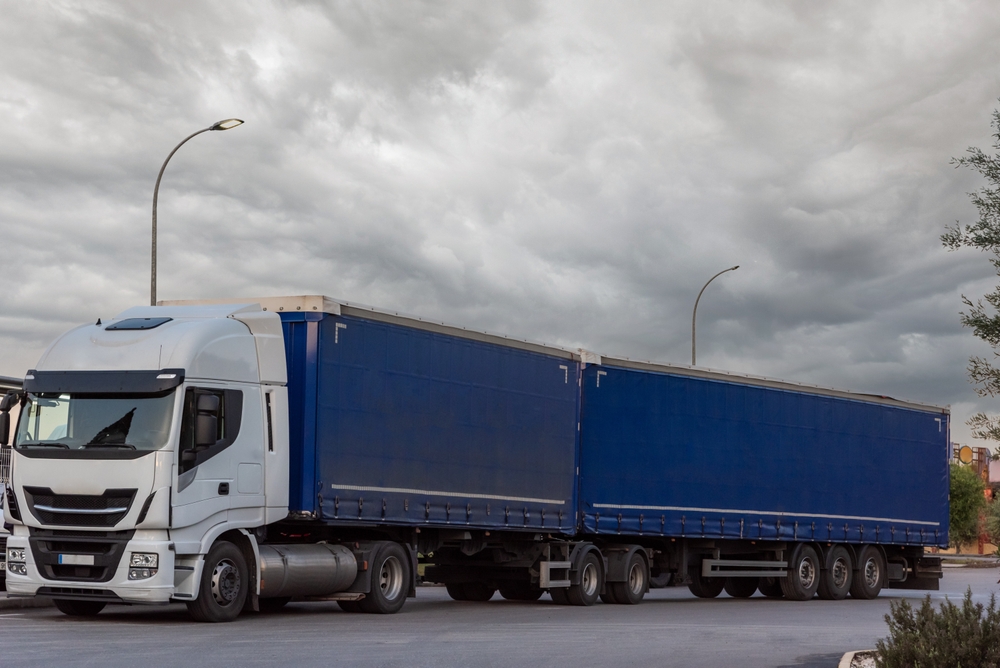What Are Mega Trucks?
“Mega trucks” refer to:
– Double and triple-trailer combinations (up to 120 feet long),
– Trucks weighing over 88,000 lbs (beyond Florida’s default 80,000-lb limit),
– Extended cabs with increased blind spots and braking distances.
While Federal law under 23 U.S.C. § 127 currently caps vehicle weight at 80,000 lbs on most federal highways, pilot programs and state exemptions—including in Florida—have allowed heavier and longer trucks under specific permits.
Why Mega Trucks Are So Dangerous
Mega trucks carry higher risks due to:
– Longer stopping distances (up to 40% greater than standard trucks),
– Increased rollover and jackknife risk, especially on Florida’s wet roads,
– Blind spots that can hide entire vehicles,
– Higher chance of catastrophic multi-car pileups when crashes occur.
According to the National Highway Traffic Safety Administration (NHTSA), crashes involving large trucks caused over 5,000 fatalities in 2023, and Florida ranked among the top five states in large truck crash deaths.
Who’s Pushing for Bigger Trucks—and Why It Matters
In 2024 and 2025, trade groups like the American Trucking Associations (ATA) and Florida Trucking Association lobbied for legislation to raise legal weight limits, citing driver shortages and supply chain demands.
However, safety advocates like the Truck Safety Coalition and Public Citizen have opposed these measures, arguing that:
– Existing infrastructure (e.g., Florida’s aging bridges and roads) can’t safely support mega trucks,
– Maintenance costs for roadways will skyrocket,
– Fatality risks for passenger vehicles will rise.
If a crash occurs, these oversized trucks cause more severe damage—meaning greater medical bills, traumatic injuries, and higher litigation stakes.
How Abrams Justice Uses Mega Truck Data in Litigation
These oversized vehicles are governed not just by Florida traffic laws, but by strict federal safety regulations, including:
– FMCSA weight, inspection, and maintenance rules (49 C.F.R. §§ 393, 396),
– Florida’s commercial vehicle special permit laws (Fla. Stat. § 316.550).
We investigate whether the trucking company:
– Violated permit limitations (e.g., overloaded, wrong route),
– Ignored maintenance schedules despite excessive wear,
– Lacked proper training for operating extra-long trailers,
– Had previous violations with FDOT or FMCSA.
In many cases, we expose systemic violations that support claims of gross negligence and justify punitive damages against companies that prioritize profit over safety.
2025 Trend: Blaming the Victim
Defense firms in Florida are increasingly trying to blame drivers in passenger cars for “unsafe merging,” “riding in blind spots,” or “braking too fast” in front of mega trucks.
We counter that by:
– Using dash cam and telematics data to reconstruct the crash,
– Subpoenaing driver rest logs and training records,
– Consulting expert witnesses on braking mechanics and trailer sway.
Florida juries want the truth—not corporate excuses—and we bring them the full picture.
Conclusion: If You’ve Been Hit by a Mega Truck, the Law Is on Your Side
These trucks don’t belong on narrow roads or city streets—and certainly not in a negligent operator’s hands. At Abrams Justice, we’ve seen firsthand how mega truck crashes destroy lives. And we fight relentlessly to hold every party accountable—from the driver to the logistics company, broker, and maintenance provider.
If you or someone you love has been seriously injured in a crash with a mega truck in Florida, contact us today. We have the experience and tools to take on national trucking companies—and win.


